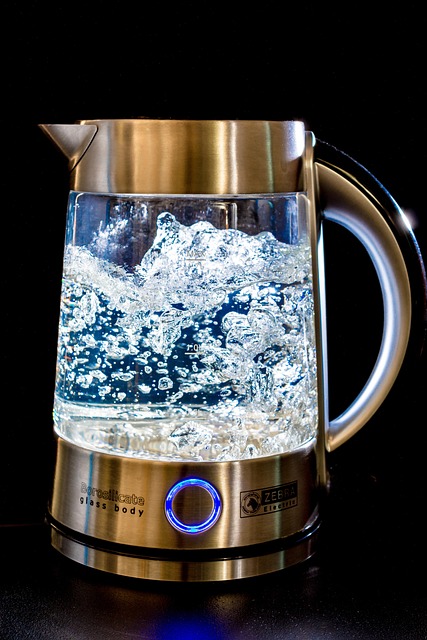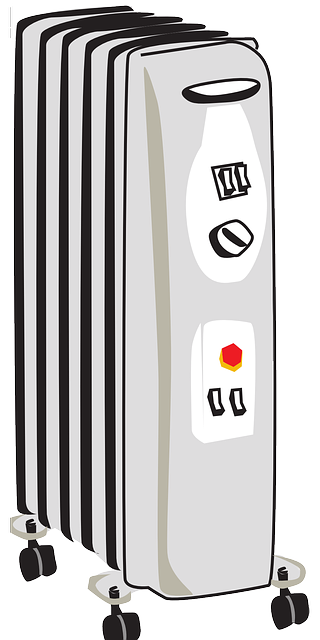Recognize early signs like temperature fluctuations, rust, unusual noises, high energy bills, frequent repairs or age (over 10-15 years) as indicators your water heater may need replacing. Evaluate energy usage, space, local regulations, budget and timeline for a seamless upgrade, comparing costs, safety and efficiency with professional installation. Keep maintenance records to track issues that could point to a new heater.
Is your water heater starting to show its age? Knowing the signs of a failing water heater can save you from unexpected breaks and costly repairs. In this article, we’ll guide you through recognizing common issues that indicate it’s time for an upgrade. We’ll walk you through the evaluation process to determine if replacing your water heater is necessary. Additionally, we’ll provide step-by-step advice on upgrading to a new model, ensuring a smooth transition. Learn these key signs and what actions to take when considering a new water heater.
- Recognizing Common Water Heater Issues
- Evaluating the Need for a Replacement
- Steps to Take When Upgrading Your Water Heater
Recognizing Common Water Heater Issues

Water heaters are an essential part of modern living, and recognizing the signs of trouble early can save you from unexpected disruptions. Some common issues that indicate your water heater may be nearing its end include frequent temperature fluctuations, where hot water becomes lukewarm quickly or cold water takes forever to heat up. This could be a result of faulty heating elements or a broken thermostat. Another sign is persistent rust or corrosion on the tank’s surface, which not only reduces efficiency but can also lead to leaks and potential water damage.
If you notice strange noises coming from your water heater, such as banging or rumbling, it might suggest that sediment has built up inside the tank, causing the tank to vibrate abnormally. Over time, these issues accumulate, resulting in a less efficient system and increased energy bills. It’s crucial to pay attention to these signs and consider whether it’s time for a water heater replacement, especially if your unit is more than 10 years old.
Evaluating the Need for a Replacement

If you’ve noticed persistent issues with your water heater, it might be time to consider a replacement. Evaluating the need for a new water heater involves paying close attention to several signs. One of the most obvious indicators is an inconsistency in water temperature. If your hot water supply is either too cold or cuts out abruptly, it could suggest a faulty heating element or a problem with the temperature control settings. Another telltale sign is excessive energy usage, indicated by unusually high utility bills. This might be caused by an outdated model that isn’t as energy-efficient as modern alternatives.
Additionally, frequent repairs or a water heater that constantly needs maintenance can be a clear signal that it’s reaching the end of its lifespan. As water heaters age, they become less efficient and more prone to failure. If you’ve had multiple repair calls in recent years, it might be more cost-effective to invest in a new model. Keep an eye out for signs like rust or corrosion inside the tank, which can lead to leaks and reduced water heating capacity. Finally, if your water heater is more than 10-15 years old, it’s likely due for a replacement to ensure reliable hot water supply and avoid potential safety hazards associated with old, malfunctioning heaters.
Steps to Take When Upgrading Your Water Heater

When it comes to upgrading your water heater, there are several steps to take to ensure a smooth transition. First, assess your current energy usage and space constraints. Different types of heaters cater to various needs—electric, gas, tankless, or heat pump—so choose one that fits your home’s requirements. Check local regulations and consider the environmental impact; modern models often boast energy-saving features.
Next, evaluate your budget and timeline. Water heaters vary widely in price, so compare options based on cost and reliability. Plan for installation by a professional to ensure safety and efficiency. Keep records of maintenance and repair history—if you’ve been dealing with frequent issues, it’s likely a sign you need a new one.
If you’ve noticed persistent issues with your water heater, such as frequent temperature fluctuations, increased energy bills, or loud noises, it might be time to consider replacing it. Evaluating these signs you need a new water heater is crucial for ensuring reliable hot water and preventing unexpected breakdowns. Upgrading your water heater can enhance your home’s comfort and efficiency, so take the necessary steps outlined in this article to make an informed decision and choose the best replacement option for your needs.
